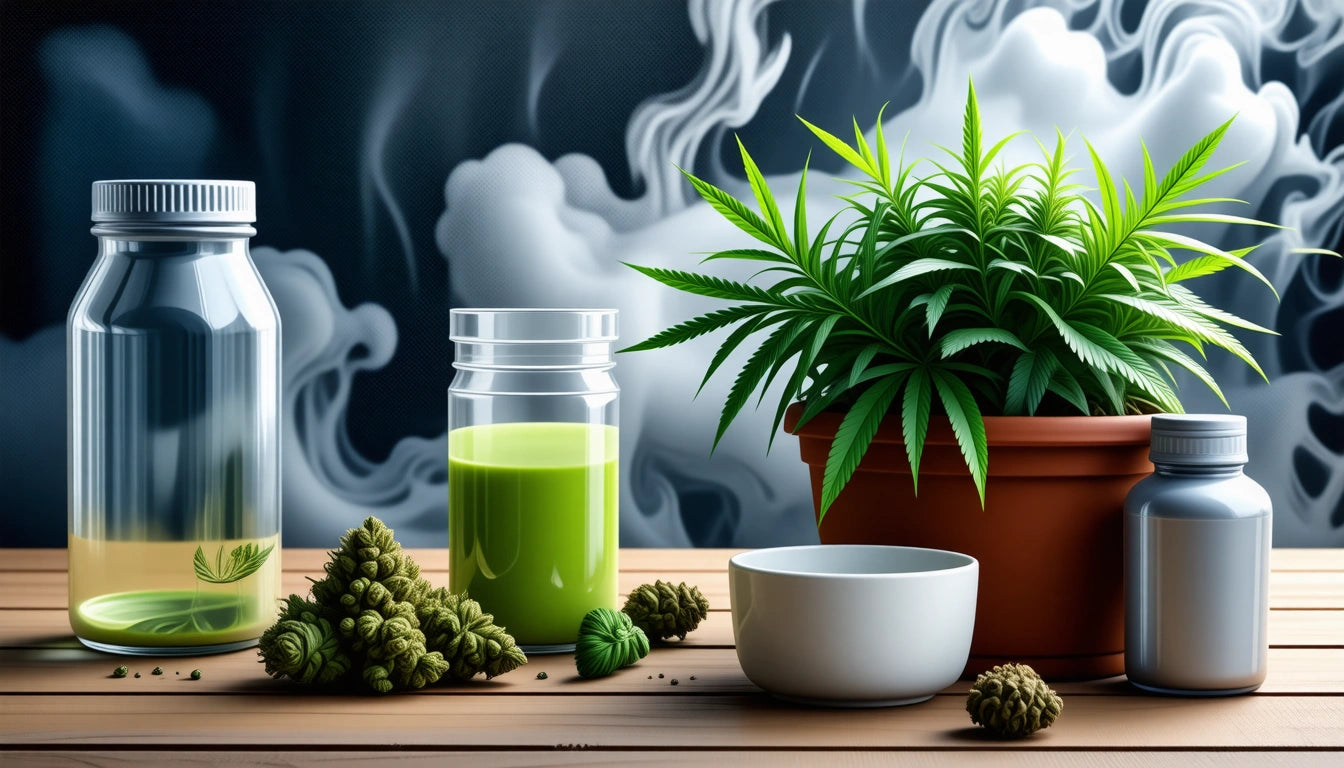Table of Contents
Does Hemp Affect Drug Test Results?
The rising popularity of hemp-based products has created confusion about their potential impact on drug test results. Many consumers worry about whether using hemp oil, lotions, or consuming hemp seeds could lead to a positive drug test. This concern is valid, especially for those subject to workplace drug screening or other testing requirements.
Hemp vs. Marijuana: Understanding the Key Differences
Hemp and marijuana both belong to the Cannabis sativa plant family, but they differ significantly in their chemical composition. The primary distinction lies in their tetrahydrocannabinol (THC) content, the psychoactive compound responsible for marijuana's intoxicating effects.
According to federal regulations, legal hemp must contain no more than 0.3% THC on a dry weight basis. In contrast, marijuana typically contains 5-30% THC. This legal distinction is crucial for understanding potential drug test implications, as most drug tests screen specifically for THC metabolites, not for hemp itself.
THC Content in Hemp Products
Hemp Seed Oil
Hemp seed oil is pressed from hemp seeds, which naturally contain very little to no THC. Pure hemp seed oil is unlikely to cause a positive drug test result. However, contamination during processing can occur if seeds come into contact with other parts of the plant containing THC.
Full-Spectrum Hemp Products
Full-spectrum hemp products, including some CBD oils, contain all cannabinoids present in the hemp plant, including trace amounts of THC (up to the legal limit of 0.3%). While this amount is minimal, consistent use of full-spectrum products could potentially lead to THC accumulation in the body.
Broad-Spectrum and Isolate Products
Broad-spectrum hemp products have THC removed but retain other cannabinoids. CBD isolates contain only CBD with no other cannabinoids. These products pose the lowest risk for drug testing concerns.
Types of Drug Tests and Their Sensitivity to Hemp
Different drug testing methods have varying sensitivity levels for detecting THC metabolites. Understanding these differences can help consumers assess their risk when using hemp products.
- Urine tests: The most common type of drug test, typically detecting THC metabolites from use within the past 3-30 days depending on frequency of use.
- Blood tests: Generally detect recent use, within hours to a few days, as discussed in this detailed analysis.
- Saliva tests: Detect very recent use, typically within 24-72 hours.
- Hair tests: Can detect THC metabolites for up to 90 days but require higher levels of consumption.
Standard workplace drug tests typically look for THC-COOH, a metabolite of THC, with cutoff levels ranging from 15-50 nanograms per milliliter. While hemp products contain minimal THC, regular use of certain hemp products could potentially result in accumulated levels that exceed these thresholds.
Topical Hemp Products and Drug Testing
Many consumers wonder specifically about topical hemp products such as lotions and balms. Questions like "will hemp lotion show on a drug test" or "can hemp seed oil lotion show up on drug test" are common concerns.
Research suggests that topical application of hemp products poses minimal risk for drug test interference. THC in topicals generally doesn't penetrate the bloodstream in significant amounts. When processing plant materials for various applications, specialized equipment like industrial cannabis grinding machines helps maintain consistency and quality control, which can reduce contamination risks in the final products.
Products like Hempz lotion, which primarily use hemp seed oil, contain negligible amounts of THC and are highly unlikely to cause a positive drug test result through topical application alone. However, it's worth noting that some topical products may contain higher concentrations of cannabinoids, so checking product labels and third-party test results remains important.
Minimizing Risks When Using Hemp Products
For those concerned about drug testing while using hemp products, several strategies can help minimize potential risks:
Choose Products Carefully
Opt for broad-spectrum or isolate products that have had THC removed. Always purchase from reputable companies that provide third-party lab testing results verifying THC content.
Check Certificate of Analysis
Reputable hemp product manufacturers provide a Certificate of Analysis (COA) for their products. This document verifies the cannabinoid content and confirms the absence of contaminants. Understanding testing procedures can help you interpret these results.
Consider Timing
If you know you'll be drug tested, consider temporarily discontinuing use of hemp products, particularly full-spectrum varieties, several weeks before the test. THC metabolites can remain in the system for varying periods depending on factors like body composition, metabolism, and frequency of use.
Disclose Use to Testing Facilities
In some cases, it may be advisable to inform the testing facility about your legal hemp product use. This information could be relevant if you receive unexpected positive results.
Future Implications for Hemp Users and Drug Testing
As hemp products become more mainstream, drug testing protocols may eventually evolve to better distinguish between hemp use and marijuana use. Some testing facilities are already developing more sophisticated methods to differentiate between THC from hemp and THC from marijuana.
Until then, consumers should remain cautious, especially if subject to zero-tolerance drug policies. While hemp products are federally legal and offer numerous benefits, their potential impact on drug testing results requires careful consideration, particularly for those in sensitive employment positions or subject to regular screening.
Remember that individual factors like metabolism, frequency of use, and product quality all play significant roles in how hemp products might affect drug test results. When in doubt, consult with healthcare providers or testing experts about your specific situation.











Leave a comment
All comments are moderated before being published.
This site is protected by hCaptcha and the hCaptcha Privacy Policy and Terms of Service apply.